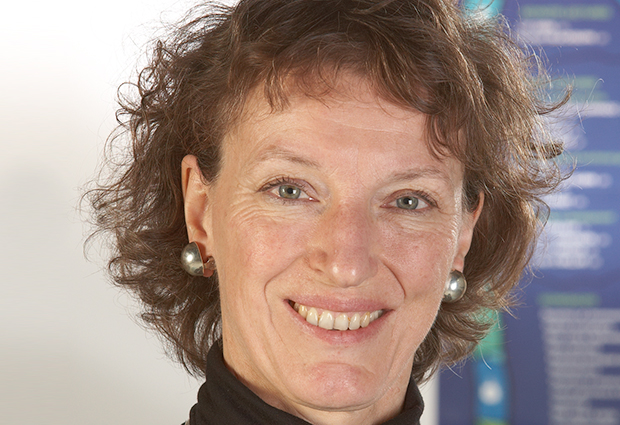
A chance to make scientists’ voices heard
In the context of a roundtable discussion between life scientists and the ERC Scientific Council, EMBO Director and EMBL group leader Maria Leptin reflects on the importance of providing feedback to create a European research environment that serves the needs of the community.

By Maria Leptin
Just last year, the European Research Council (ERC) celebrated its tenth anniversary and, marking the occasion, much has been said about how the ERC has driven and shaped excellent research across Europe. But of course nothing is perfect, and the European Commission and the ERC are always seeking to improve in ways that make its funding schemes most relevant and useful to the scientific community. To do so, they seek and offer opportunities for researchers to provide feedback as well as potential solutions.
One such instance were two roundtable discussions with ERC representatives on 2 March 2018 in Heidelberg, to which local life scientists were invited. The event follows the ERC Scientific Council’s first plenary meeting in 2018, which was co-hosted by EMBO and EMBL.
The topics discussed were the ERC grant application process and the available grant formats, as seen from a life sciences perspective.
Counteracting the decline in life science funds
One of the problems with ERC funding for researchers in the life sciences is the decline in the proportion of overall ERC funds allocated to the life sciences over the last four years.
To understand what can be done it is first necessary to understand how the budget is distributed between the three domains, Life Sciences (LS), Physical Sciences and Engineering (PE) and Social Sciences and Humanities (PH).
In the past, the allocation of funds to each domain was fixed for each year before the call for applications was made. It was determined in such a way that the amount per domain was proportional to the size of the field. Therefore, the success rate for applicants in the different domains depended exclusively on the number of applications, and the fewer applicants there were, the better their chance.
However, this changed in 2014. The distribution of funds between the domains is now only determined after all applications have been received, and funds are allocated in proportion to the overall budget applied for (which is roughly proportional to the number of applications).
This may be fairer because now the success rate is the same in all disciplines. But it means that as the number of applications in the life sciences dropped, so did the proportion of funds available.
If the life science community is concerned about this trend, it is our own responsibility to act. One of the ways we can counteract this trend is to encourage members of our community to apply for grants, and not be discouraged by previous failure, be it our own or that of colleagues.
Making sure our needs are considered
The other thing we must do is to embrace occasions like the discussions with the ERC Scientific Council in Heidelberg this week to voice our opinion on existing processes and structures, including, for example, how the funds are administered. This would help to make sure that the needs and requirements of researchers are considered.
Apart from taking part in roundtable discussions such as the one in Heidelberg, we can (and should) also contribute to the discussions about the future of ERC funding in other ways.
Right now, the scientific community can influence decisions on EU science funding for 2021-2027 by responding to the EU’s consultations on the post-2020 budget, the ‘Multiannual Financial Framework’, which includes Framework Programme 9 that will cover research funding from the Directorate General for Research and Innovation. The consultations are still open until 8 March.
In addition to the institutional responses by EMBL and EMBO, I encourage everyone to contribute, either as an individual or through their institution, to make sure the collective voices of life scientists are heard by the European Commission.
Now is when we can speak out for changes in the way that the Commission and the ERC support and shape the European research environment. Let us not miss the chance.


